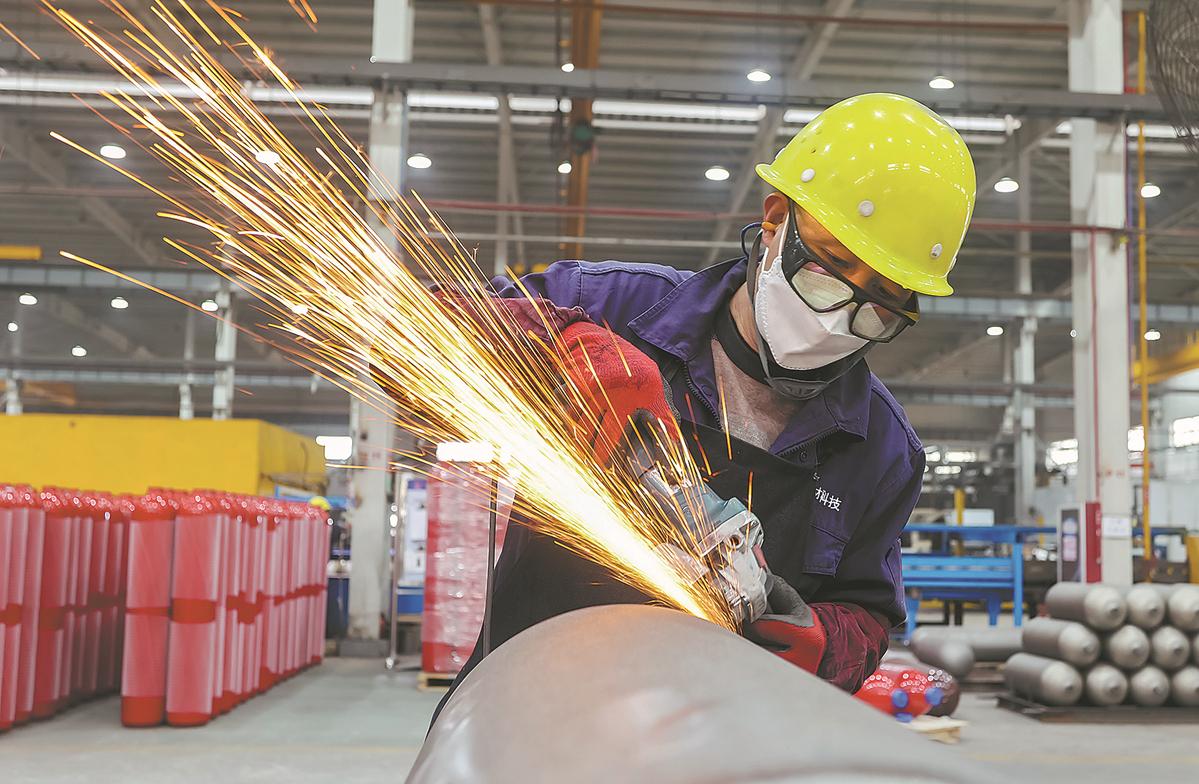China to retain 'world factory' status

An employee of Sinoma Science Technology (Jiujiang) Co, a manufacturer of seamless steel gas cylinders, works at a factory in Jiujiang, Jiangxi province, on Mar 1. WEI DONGSHENG/FOR CHINA DAILY
An eminent Chinese scholar on foreign trade studies has rebutted a claim made by analysts and a section of the media that India and some Southeast Asian countries will gradually replace China's role as the "world factory", a metaphor used to describe its major role in manufacturing.
"China's foreign trade resilience has not weakened in recent years; it has strengthened," said Gu Xueming, a member of the 14th National Committee of the Chinese People's Political Consultative Conference and president of the Chinese Academy of International Trade and Economic Cooperation.
This resilience is epitomized by the ability of China's foreign trade to adapt quickly to changes in external and internal situations, and maintain strong stability and sustainability, Gu said in an exclusive interview with China Daily.
There is no reliable evidence supporting the concerns of those claiming that "China's role in the international division of labor will be weakened and it will drift away from the real economy", the scholar said.
"In recent years, the scale of China's industries has expanded. The industrial structure continues to be optimized and its architecture perfected, leading to great resilience and making China's foreign trade industry and supply chains irreplaceable," he added.
In 2022, China's manufacturing sector was the world's largest for the 13th consecutive year. With high-quality development of China's trade and manufacturing sectors, the nation's "world factory" status will not change, and its foundation and advantages will be further strengthened, according to the scholar.
"China's support for the development of the real economy and the development of high-end manufacturing will not change either," Gu said.
This year's Government Work Report has proposed to proactively promote China's accession to the Comprehensive and Progressive Agreement for Trans-Pacific Partnership, a regional free trade treaty.
"China's statement to actively seek CPTPP membership illustrates its attitude and determination to expand its opening-up," Gu said.
Speaking on the country's foreign trade outlook for this year, he said, "The long-term positive trend has not changed and will not change."
While keeping its foreign trade scale stable, China will focus on trade quality improvement and structural optimization, enhancing the added value of export commodities and improving the quality and efficiency of foreign trade, he said.
"We will stabilize the traditional markets, such as the United States, Europe, Japan and South Korea this year, while tapping into emerging markets, including the Latin American region and countries involved in the Belt and Road Initiative," he said.
By ZHANG YUNBI
